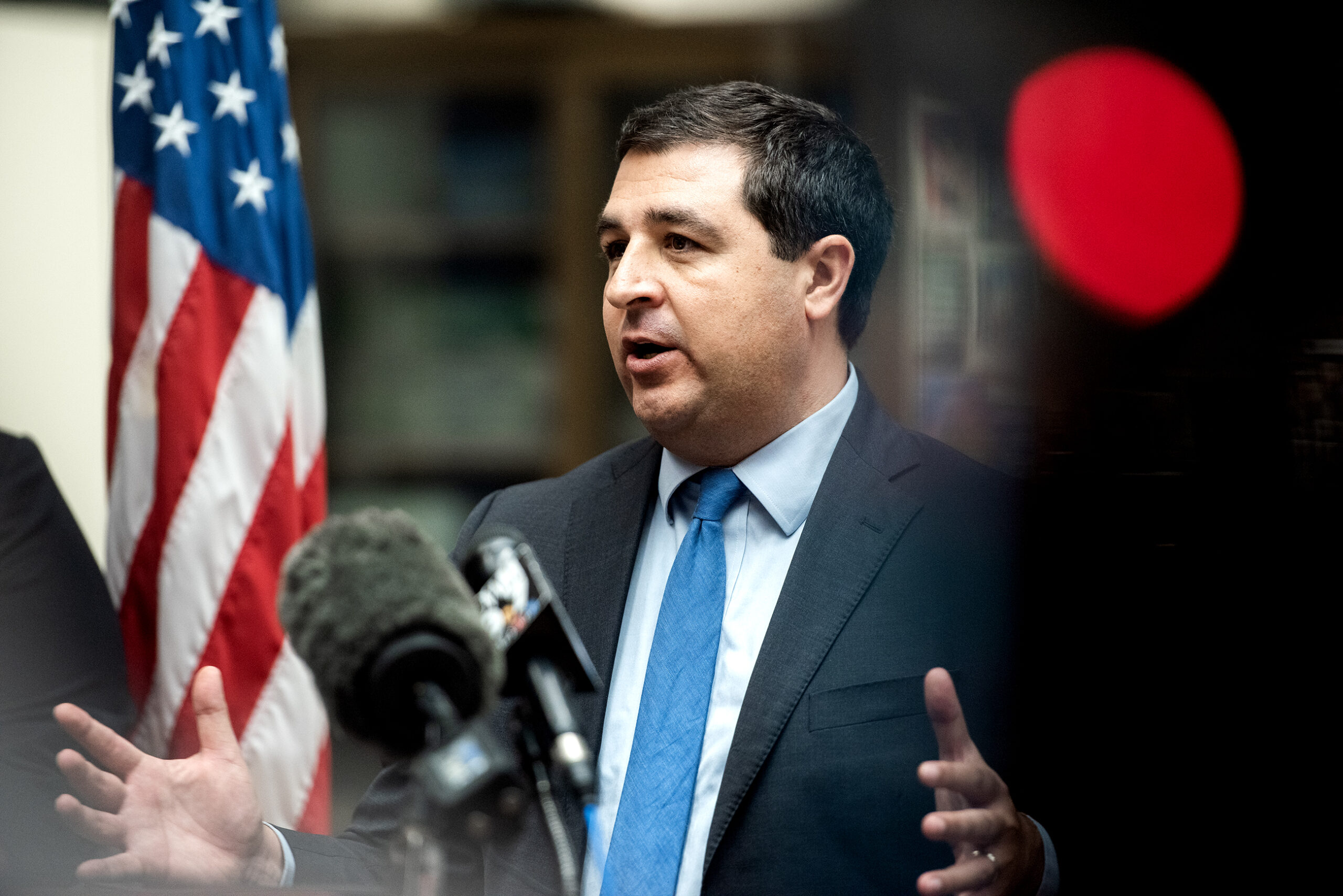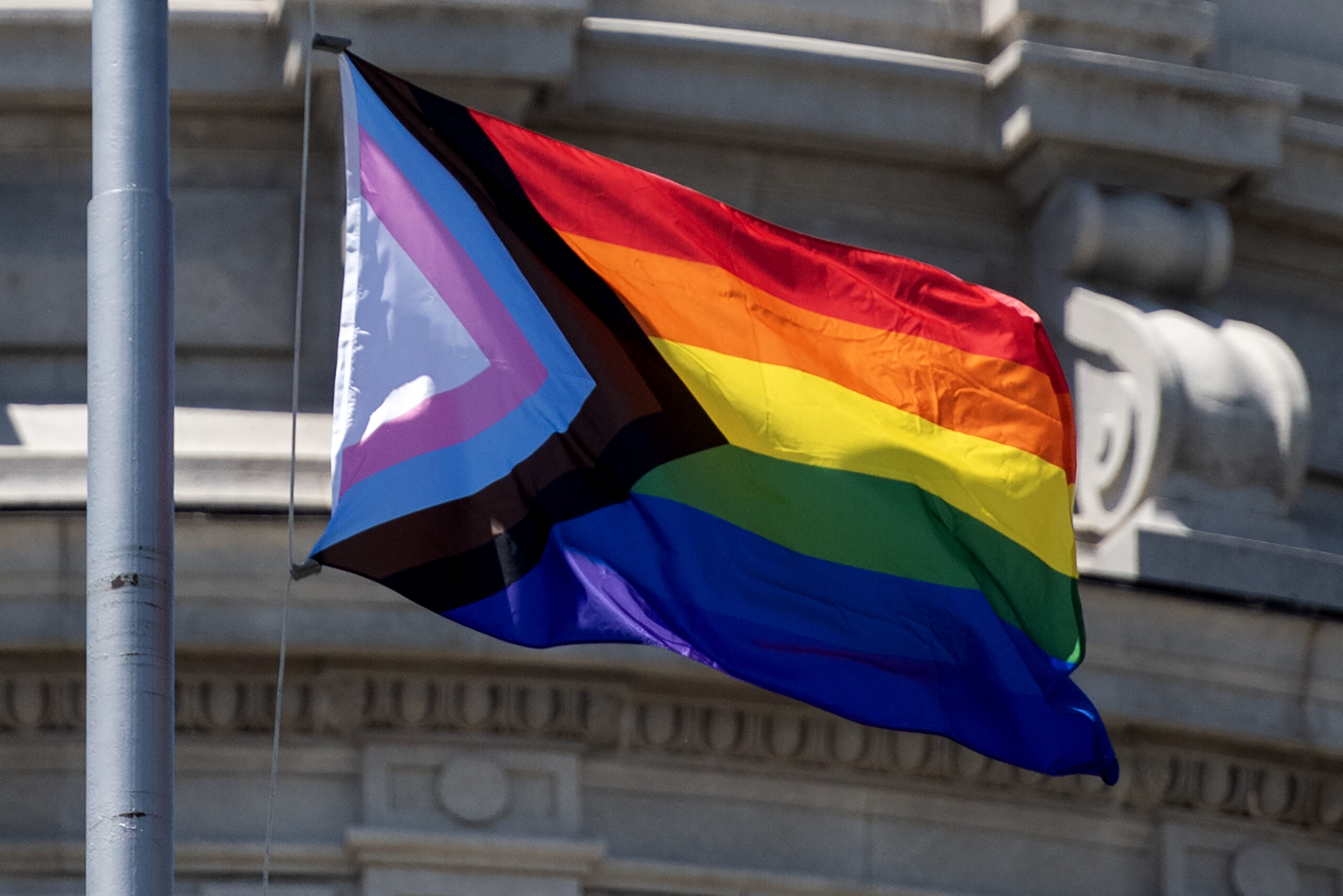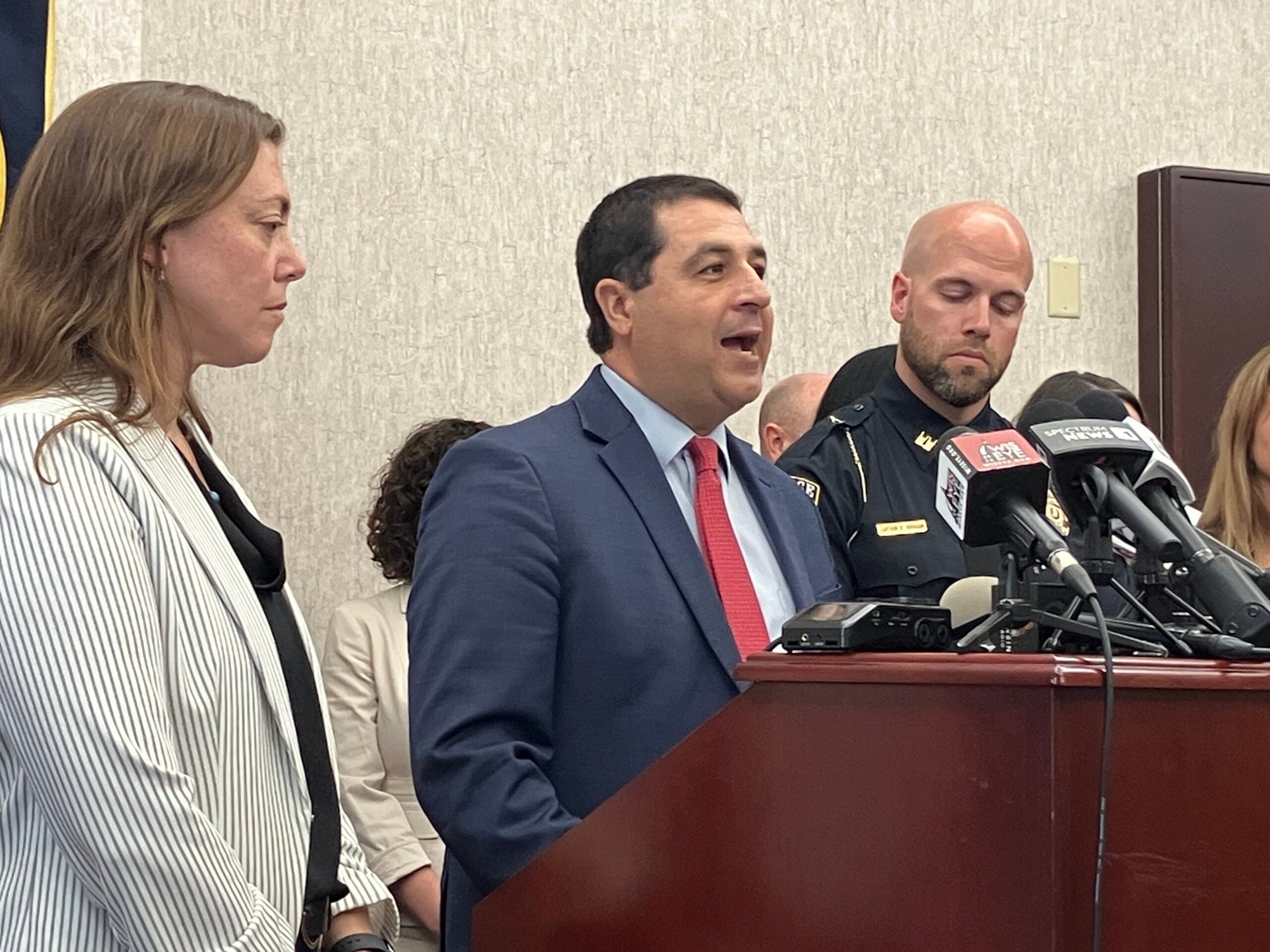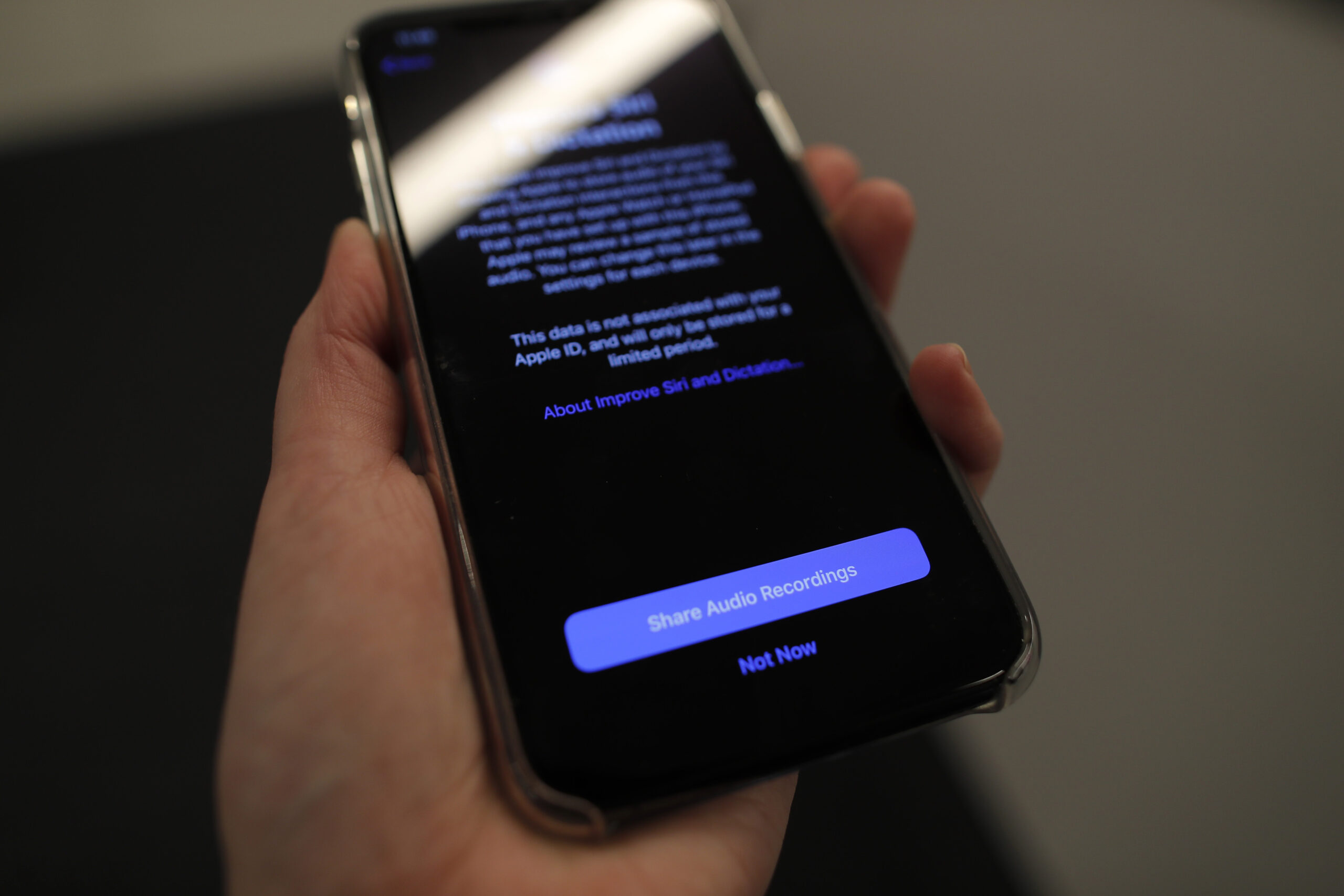Wisconsin Attorney General Josh Kaul and Gov. Tony Evers announced the state is among a group of Democratic attorneys general and governors from 23 states that is suing the Trump administration for abruptly cutting off about $11 billion in public health funding.
The group filed a lawsuit against the U.S. Department of Health and Human Services and the agency’s Secretary Robert F. Kennedy, Jr. in federal court in Rhode Island. They argue the funds were unlawfully terminated, and they want a judge to temporarily block cancellation of the grants.
Wisconsin could lose out on more than $225 million in funding canceled by the agency March 24.
In Wisconsin, the Department of Health Services, or DHS, received notice that six grant awards were terminated. They included funding to modernize data systems to improve public health response to future pandemics, as well as funding for the state’s 988 Suicide and Crisis Lifeline.
Evers accused President Donald Trump and Elon Musk of gutting funding for public health to pay for tax cuts for the wealthy.
“These cuts will hurt Wisconsin’s ability to combat fentanyl and the opioid epidemic, help folks in mental health crisis, and respond to future public health emergencies. I won’t stand for it,” Evers said in a statement.
Kaul said the Trump administration lacked authority to claw back funds authorized by Congress, providing no legitimate cause.
“It’s also important to note that this is a time when there has been a risk of measles that has risen. We’re at risk of bird flu, and so making sure that our public health infrastructure is prepared to respond if there’s a crisis is critical. We all saw that during the COVID pandemic,” Kaul told WPR. “Cutting the kinds of funds that can help us prepare for a public health crisis like that is an incredibly short-sighted move by the Trump administration.”
Kaul wants to see the funding restored. The U.S. Health and Human Services Department said it doesn’t comment on pending litigation, saying it’s untrue that funding is being adjusted to fund tax cuts for the wealthy.
The lawsuit comes as the the agency began mass layoffs, according to the Associated Press. The department planned to cut its workforce by up to 10,000 people.
“HHS is committed to transforming into a more efficient, streamlined, and effective agency, in line with President Donald J. Trump’s and Secretary Robert F. Kennedy’s mission to Make America Healthy Again. Ongoing critical public health efforts will remain a top priority and will not be impacted by this administrative realignment,” said HHS Press Secretary Vianca N. Rodriguez Feliciano.

News with a little more humanity
WPR’s “Wisconsin Today” newsletter keeps you connected to the state you love without feeling overwhelmed. No paywall. No agenda. No corporate filter.
Loss of funds affects state lab testing and cancer reporting
In a court filing, DHS Deputy Secretary Debra Standridge said the Centers for Disease Control and Prevention and the Substance Abuse and Mental Health Services Administration, or SAMHSA, said awards were terminated “for cause” based on the end of the COVID-19 pandemic.
“These grants and cooperative agreements were issued for a limited purpose: to ameliorate the effects of the pandemic. Now that the pandemic is over, the grants and cooperative agreements are no longer necessary as their limited purpose has run out,” the agencies wrote.
DHS has 85 employees who were supporting work to control infectious diseases under $165 million in remaining CDC grant funds that were clawed back. The loss of funding means the Wisconsin State Lab of Hygiene won’t be able to get new instruments needed to to support lab capacity for public health agencies.
“If equipment is not maintained and certified according to federal regulatory guidelines, equipment will be shut down and unavailable for testing, which will provide a negative impact on disease detection, patient care, and disease prevention,” Standridge wrote in the filing.
Standridge said lab tests will also be negatively affected, including one that detects more than 20 of the most common respiratory pathogens. She said funding may be halted or shifted away from testing for other illnesses. In addition, the termination of funds will affect upgrades to the Wisconsin Cancer Reporting System. She said that’s expected to slow researchers’ ability to improve cancer prevention, detection and treatment.
State’s suicide and crisis lifeline loses federal funding
Related to mental health services, the Department of Health Services lost about $5.8 million in remaining funding that was awarded to the state in COVID-19 relief, mental health block grants and a SAMHSA improvement grant for the state’s 988 Suicide and Crisis Lifeline. The three sources of funding for the crisis line were set to run through Sept. 30.
Caroline Crehan Neumann, the crisis services coordinator for DHS, told WPR the state is doing everything it can to prioritize funding and ensure operations and personnel remain unaffected. The lifeline is staffed by 82 counselors, a 41 percent increase compared to February of last year. The lifeline has received more than 160,000 calls since it launched in July 2022.
“We know that this service is really life saving for a lot of people. We hear those stories all the time when we go out in the community and do outreach, and people tell us about how they’ve used the service,” Crehan Neumann said. “We’re going to continue to prioritize it the best we can with any money that we can find.”
Crehan Neumann said the lifeline experienced a 45 percent increase in calls, chats and texts from its first to second year of operation.
She said about 25 percent of callers report thoughts of suicide. About 25 to 50 percent of people reaching out by chat or text reported suicidal thoughts.
Evers is proposing more than $12 million over the 2025-27 budget to support the lifeline’s call centers and its increasing call volume.
If you or someone you know is considering suicide, call or text the three-digit suicide and crisis lifeline at 988. Resources are available online here.
Wisconsin Public Radio, © Copyright 2025, Board of Regents of the University of Wisconsin System and Wisconsin Educational Communications Board.






